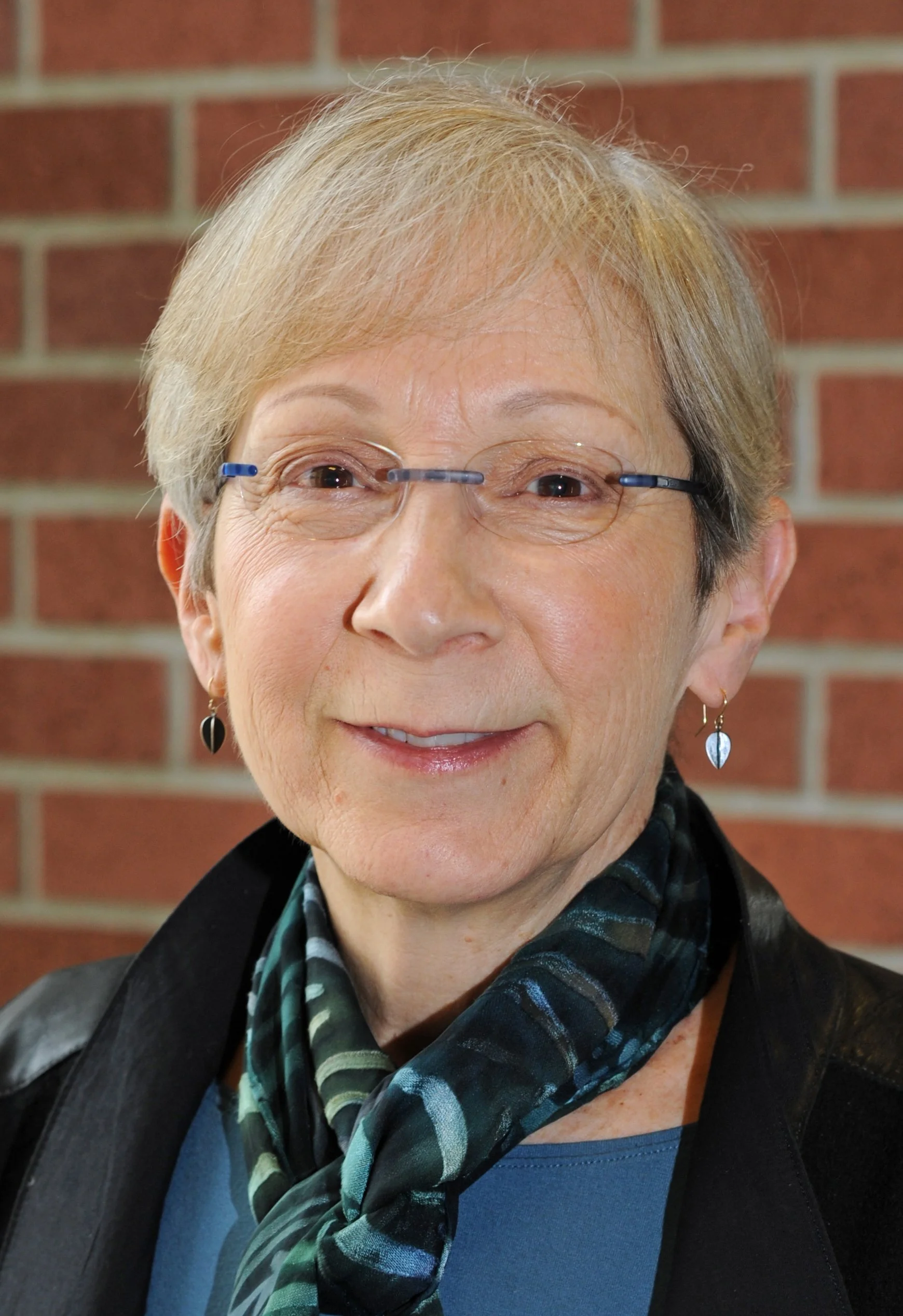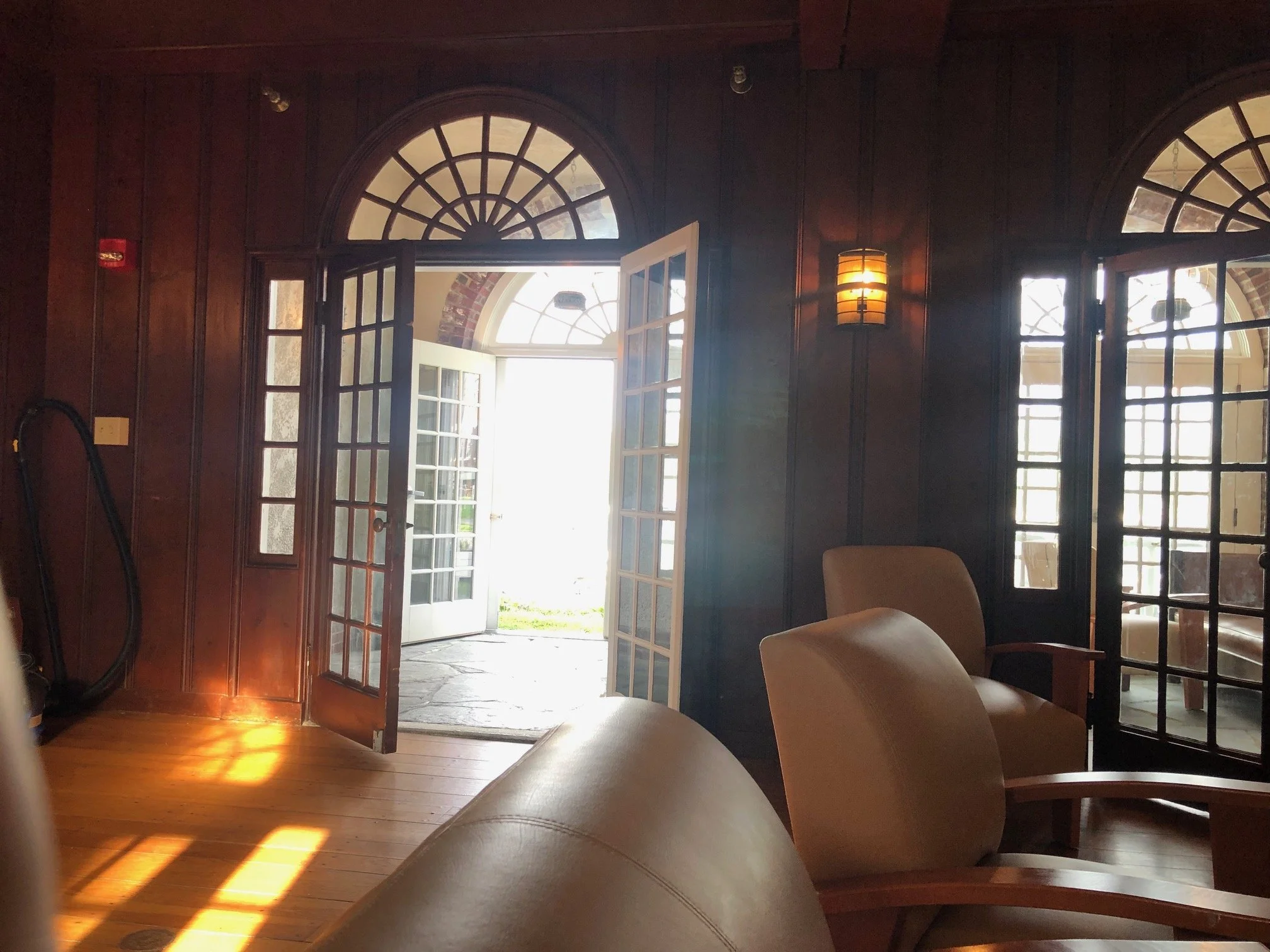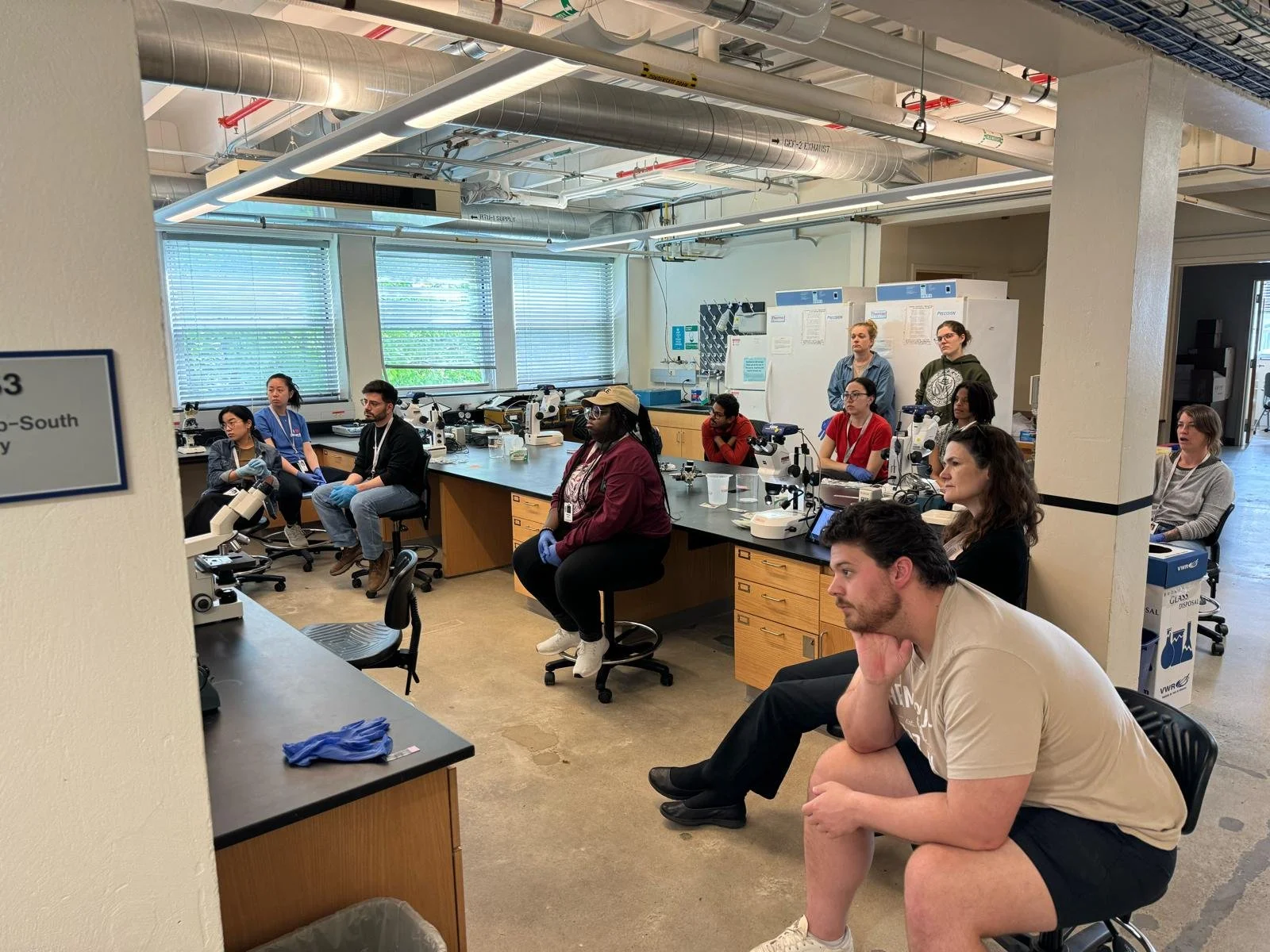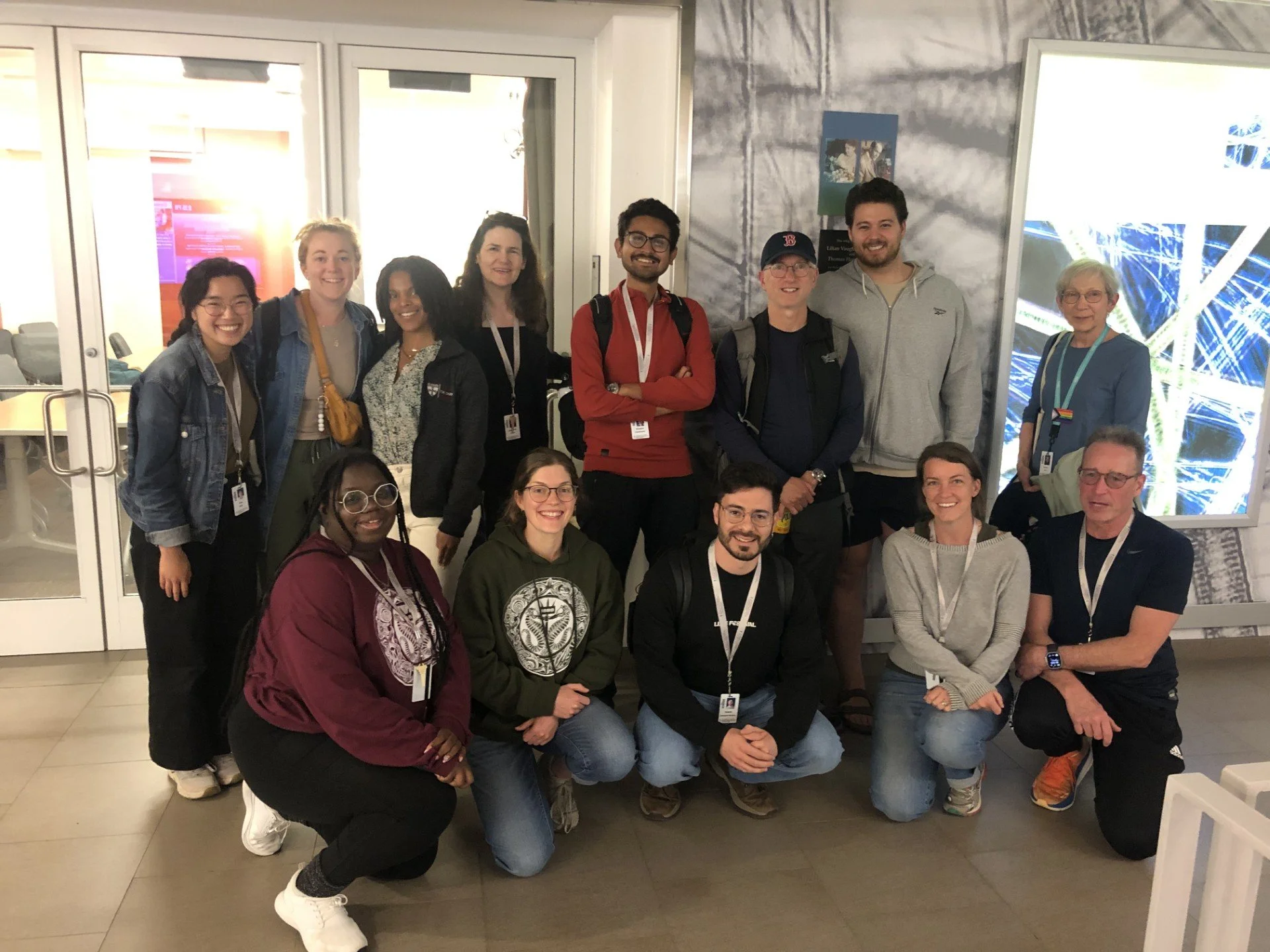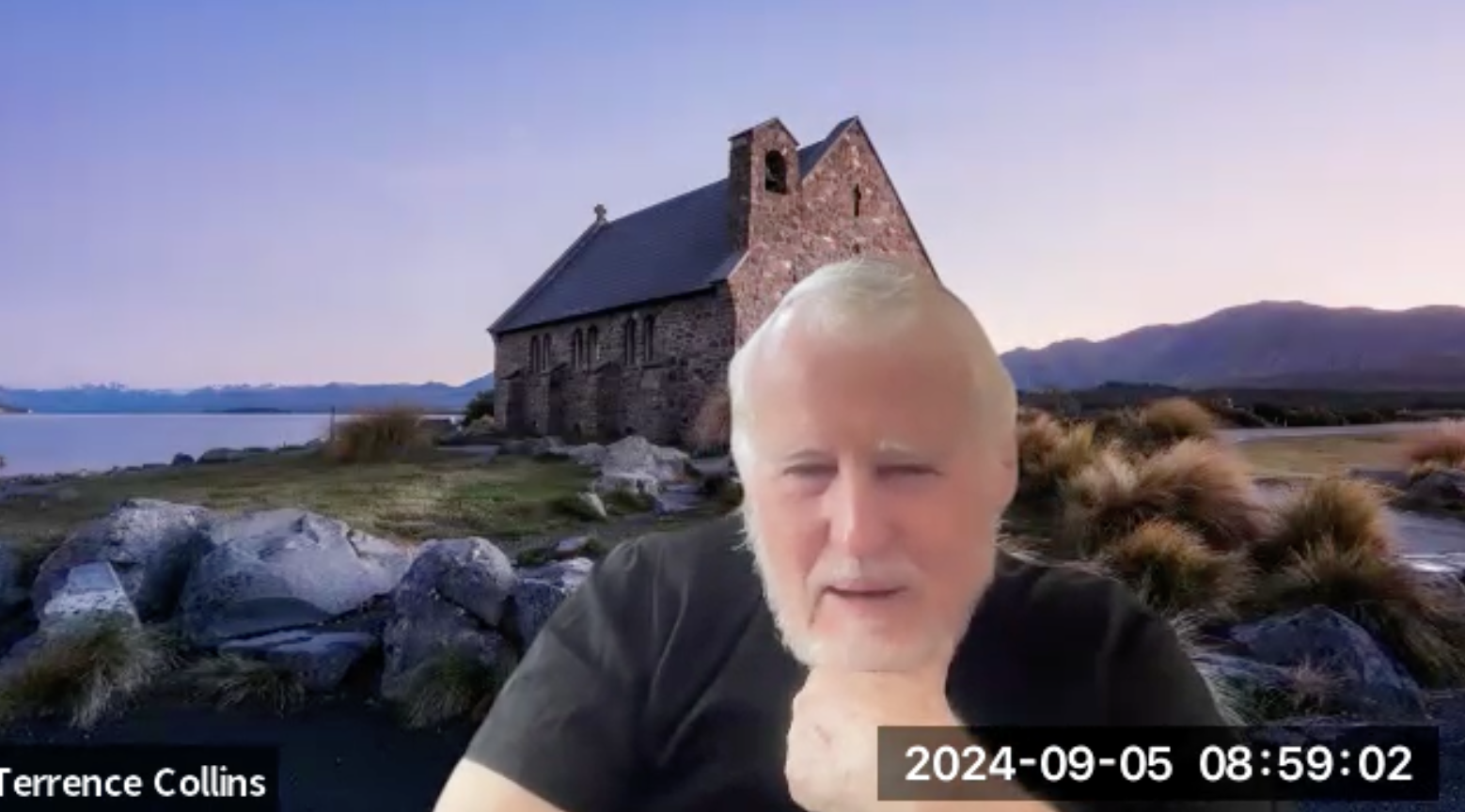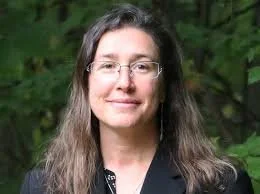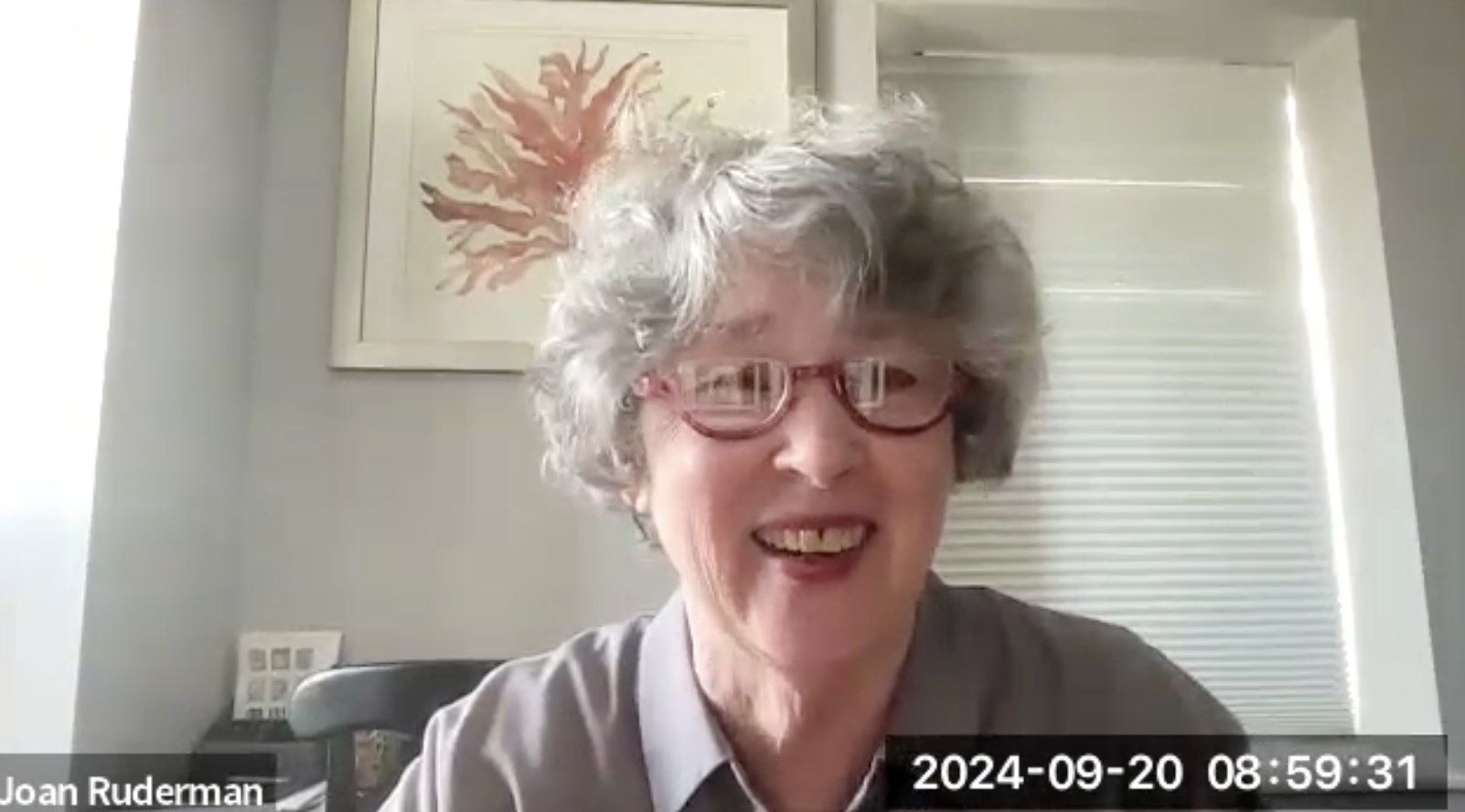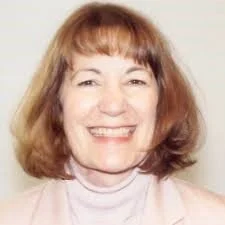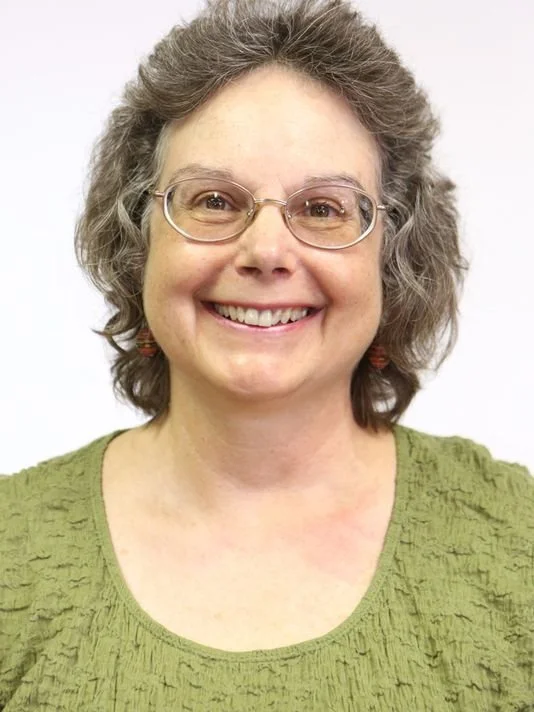Patricia Hunt, PhD, is such an impressive person and one of the researchers I have been most privileged to get to know – at the Marine Biological Laboratory (MBL) at Woods Hole. She is a Regents Professor in the School of Molecular Biosciences at Washington State University, Pullman, WA and was named by Scientific American as one of the top 50 scientists nationwide in 2007. I am so grateful to have had the opportunity to complete her two-week course at MBL in May: Endocrine-Disrupting Chemicals: Hazards and Opportunities (ECHO). Honestly, I was the diversity hire: most participants were graduate students in the discipline from prestigious universities. But Pat said she was not the only person to nominate me, and I hope I fulfilled my role – providing intergenerational and interdisciplinary perspectives to this amazing cohort – whom I now count as friends. I loved the students and faculty! I loved the intense learning experience! I loved living in a Spartan dorm room with a kind and brilliant roommate a few feet from the water! After one day, we all remarked that it felt like we had lived there together a long time.
Dr. Hunt is a legendary researcher I had read about many years before. Her accidental discovery of Bisphenol A (BPA) in her mouse cages, caused by a particular high-pH detergent, made history. She was among the first to show that we are all exposed to Endocrine-Disrupting Chemicals (EDCs) like BPA and that they can have profound effects. She was the researcher most responsible for the push for BPA-free baby bottles. If you met Dr. Hunt, you would immediately see she is a real, down-to-Earth person. She faced substantial push-back from the industry, as expected, and weathered the storm, even as she faced her own toxic tempest: breast cancer caused, she has every reason to believe, by her exposures as a DES daughter. I see commonalities with my story. We are both people whose lives have been profoundly altered and harmed by the environmental chemicals to which we are all exposed, without our knowledge or consent. We are both people who see the gravity of the present moment, when these exposures threaten all life on Earth, and yet hope that we may do better in the future, particularly if we can educate our students and the public at large about the harms of these chemicals – in order to motivate change.
This interview has been edited for length and clarity.
JMK: Hello! It’s so good to see you.
PH: Good to see you, too.
JMK: Thank you so much for taking the time to talk to me. I really appreciate it!
I would like to rehear your origin story, so I can capture all the details. But I was thinking -- you told us about two things. One is your accidental discovery about BPA. And then you talked to us about being a DES daughter, and then also being diagnosed with cancer. I wondered, what is the nexus of that? Did you think about that over the years?
PH: Of course -- how can you not? It's like estrogen has ruled my life. That started plaguing me when I was really young, when the first pap came back abnormal in college. When I talked to my mom, I hadn’t known anything about the DES exposure until then. And that's right when the clear-cell carcinoma story was breaking. I spent a lot of my young adult years getting my cervix burned off and frozen off. So the whole breast cancer thing to me was not a surprise.
What was a surprise was how few docs connected these two things. When I went off to graduate school, I had an OB/GYN who had a grant to study the DES daughters, so she was really supportive and interested. As I moved on through my life, and then when I got breast cancer as a young associate professor, I had to educate them that this is caused by DES.
The first time around, I had a breast exam from a male doctor who said, of course you have fibrocystic breast disease. And it was like, honey, this is the only pair I’ve ever felt, and they feel fine to me.
Both times, I was the one who found it because it was so hard to detect on a mammogram. So yes – it’s colored my life. Did it weigh into my decision to stay in the field after our BPA accident? I don’t think so because I was already so galvanized by what I was seeing, because it played into exactly what we were looking at and trying to understand. How could I walk away from this – this gift? Here is an inroad that is a completely different approach to trying to take this problem apart. It has helped us understand that the connection between environment and endocrinology is a lot more complex than we ever thought it was.
JMK: I think it must have been very surprising when you got those results. Over what time period were you were trying to do the detective work to figure out what it was?
PH: The accident happened in 1998. I thought, we have to get this exactly right, because I did not look forward to breaking the story. I didn’t publish the paper until 2003. We spent a lot of time trying to test everything we could think of and see what next steps needed to be done. It wasn’t a surprise because it unfolded so slowly. One week everything was normal, and the next, the abnormality rate was higher in the controls than what we were seeing in the mutants. It took us a month trying to unravel what was going on. I was talking to everybody I could talk to.
The only way we figured it out was that I always tried to make real strong connections with the people in the mouse room – because they are the ones who are my eyes and ears there. She was a lovely woman, and I was spending time talking to her because we were trying to figure out what had happened. I walked in and said, “what is happening to the cages?” She said, “I know – it’s awful.” They were starting to show signs of wear, and they weren’t melting yet, but starting to look like that. I went, “Man, this is really weird. We have got to get rid of these and get new cages.” She is the one who actually put it together. She came back to me a day or two later and said, “You know what? We had a temporary worker who used the wrong detergent on the cages.” By that time, we could see crazes on the sides of the water bottles, and some of the seams were starting to leak. But we needed to repeatedly wash and use them. It was a slow process.
The striking thing to me is that all my life, I’ve been focused on what causes these abnormalities and thinking about it in a completely different way. I was starting to think maybe it’s hormonally related. And then I get thumped up on the side of the head. All of a sudden, we're not only on the right track, but here's now an even bigger story, because this is happening to all of us – we're all exposed. And so that's why I couldn't walk away.
It took us a year to get back on track. The accident happened. But to actually demonstrate that it was the cages and water bottles, we had to get rid of everything; we had to get all new mice, and then, we had to get ourselves ratcheted back up and demonstrate that our controls were back to normal before we could start running experiments. And then as we start to run experiments, we had to ask, is it coming from the water bottles? Is it coming from the cage? The answer was, yes and yes.
JMK: During our class, I was really struck by the difficulty of this. You talked about how it's so difficult even now – if you have the wrong butterfly needle drawing human samples…. So many plastics contain various contaminants. It's very hard to get a clean control. And of course you're having to get new mice; because of the epigenetic effects, you had to start all new.
PH: Yes -- they were all exposed, so we got all new animals. And every time we've been exposed since, we've done the same thing. Just throw out the colony and start anew.
JMK: It's a lot of work. It also seems like a waste, and it's expensive.
PH: You know, it’s heart-breaking. One of my students came to the door and he said, “You know, Dr. Hunt, I don’t think I can do any experiments.” I said, “you can’t do any experiments. You don’t have any controls.” Everybody was trapped in this. And I kept trying to turn this into lemonade for everybody. And of course, they got really good papers, but it delayed several people's graduate programs. They only really lost a year because nobody was working on this particular thing, and we went back to our other studies as soon as we could get animals back to normal. In the end, everybody ended up doing just fine.
JMK: Oh, I bet they did. This was a big deal. And yours became a famous lab. You were ranked by Scientific American as among 50 top scientists. Wow. How did that feel personally? I assume you were ambitious, and then, all of a sudden -- perhaps it was a burden in some ways -- you were getting all the media attention. But you also uncovered something really important.
PH: So here is where the two stories collide. I was really worried about how this was going to play out because I thought, this is just too close to home. At the same time we had all these interviews, I was going through chemo. So I had no hair, no eyebrows, no nothing, and was just trying to hold myself together. And I was really learning a lot about how scientists don't communicate well. And so this is why I'm so committed to the next generation, which has got to be a lot better at this than we are. Amy [Kostant] came out to Woods Hole, where I was teaching in the FIR class, and she spent an entire day with me. And they were so nice to me. She brought a camera person, and she brought another person who was a producer, and the three of them sat there with me – because this was supposed to be a 60 Minutes Two show – and they wanted to get me ready to be on television. And I thought, how can anyone go on television looking like this? They decided they were going to get a makeup person, and everything was going to be fine, but they were really, really good to me.
And as I started to prepare for all my interviews; as I think I told Frank [von Hippel], I had a process. I wrote out the questions I thought they were going to ask. And I realized how much jargon we use and how much it’s part of our lives. It’s how I talk. This is my language. You have to teach yourself not to speak in your language but to interpret your work for people. Scientists don’t do that – we tend to speak to the people in our discipline. In this field, it is particularly problematic because we are all in different disciplines, so we are all speaking different languages.
That’s where I wish you could have met Terry Collins during the course. Terry's a chemist and a really smart guy, and he got into this field, and he would sit on these calls and say, “Wait a minute. Tell me how this happens and why this happens. Help me understand what is going on here.” And he became a biologist. He asked great questions and thought about it really well. It was an education for all of us because we realized that people really need to understand.
JMK: I wish I could have met him. Everybody says he is wonderful.
PH: Well, you know you should. For me, he represents hope. Every time I put together the course, I think, okay, we have got to save Terry for the end, because it's all doom and gloom and despair, and then – maybe there is some hope here.
JMK: Well, the next question is, you have accomplished so much. Is there one thing that you're most proud of?
PH: Of all of our BPA studies, the first one got all the airtime. The ones that are the most important are ones that were harder to understand and explain to people, and the press didn’t really grab onto them. And one article is about females, and one is about males. In the first one, we saw the fetal changes in the early stages of oocyte development, because, unlike the first effect where you're hitting that egg that's ready to ovulate, you're hitting all the eggs that you will ever ovulate. I thought, “Oh my God – this is huge!” But it was underappreciated by anybody who was not in the field.
The other one was by my then-graduate student – Tegan Horan – and now she’s a postdoc and on the job market. Every time someone would ask, is this male effect trans-generational? I would think, I don’t know. I guess we should do the experiment. But I’m not really interested in doing it because every time people do these experiments, they do it this way, which is artificial: they expose one generation, and then they look at subsequent unexposed generations. But we don’t have unexposed generations.
And Tegan really picked up this banner. She said, I'm going to do the traditional transgenerational thing, but I am also going to do a multi-generational exposure. It was the first time anyone looked at successive generations of exposure. And the answer is, the effect's not good, because by the third generation, we started to get these males who couldn't produce sperm – they had these fibrotic testes.
Then she said, okay, that was cool! At the end of her experiment, we began to see contamination creeping in again. Control animals were beginning to show signs of exposure. Tegan saw this as an opportunity to ask the question, if we could get rid of this stuff, how long would it take for things to go back to normal?
And I thought that was really cool, and it was lovely to see her just decide, I'm going to take this and make something out of it.
JMK: It sounds like you're really proud of the work you did as a mentor. It's kind of you to mentor the rest of us as well.
PH: All my students were great. And ECHO is my baby; that course is just so much fun. And this was such a great class this year. I wrote Terry just this week and said, you know, it's like the first year we were just crawling, and the second year we were toddling, and things were chaotic and fun. And this year we were adolescents, and it was just wildly fun. It was also fun to go to the Gordon Conference because we had four first-years, four second-years, and I think just two from your class – Roberto and Sam. They all got to meet each other, and they started talking to all the other trainees about the course. And it's like they're doing my work of selling the course.
My next goal is, we really would like to get some trainees from the Feds – EPA, FDA, NIEHS. Heather will help from the NIEHS perspective.
JMK: I wondered if you have difficulty dealing with this topic because the results are so scary. Is there a way that you have found that is best to communicate the message while threading the needle on sharing information without creating so much anxiety that people are paralyzed?
PH: That’s always the biggest problem, especially when I talk with parent support groups. It always seems like it’s all gloom and doom – no one ever leaves my lectures singing or dancing. But people have been really responsive, and the parents always say the same thing: “we need to know. We want you to tell us what we can do.”
I think I said this in my podcast with Frank — that I was just terrified about the baby bottle thing. I mean we picked up these garden-variety polycarbonate baby bottles. And they just fell apart when they hit the detergent. I started talking to parents about it, and they saw the same thing with their baby bottles. You put them in the dishwasher because you want them to be clean, but they start to get hazy. By the time they are hazy, we know they are leaching a ton of BPA. I started telling interviewers that my concern about this is that BPA is going into the hands of the most vulnerable segment of our population. I was stunned to see the impact that had.
Consumers were picking up the phone and asking what the baby bottles are made of. It changed what consumers got because all these new polymers came on the market. Bang! Bang! Bang! Bang!
One of the guys from one of the early companies – called Born Free – was really interested in creating a product that was safe. He spent time with me talking about what he should do. This experience reinforced in me the idea that our job is not just to do our science and sit in our university environments focused on our work. Our job is to really tell people what we do. When you think about it, NIEHS has all these requirements for reporting. But nowhere do we worry about communicating our science to people, how we let people know what we are doing and what it means. In this field, that is critical.
JMK: Absolutely. I have a follow-up question. Do you trust the new polymers for baby bottles? If I had a baby now, I think I'd be going with glass as much as I could.
PH: My favorite baby present was glass bottles for new moms – but one of them said, I love them, but I can’t take them to daycare. They are a shatter hazard, and they won’t let them come in the door. I thought, I should go back to one of those companies and say, “you know how we sell acid for the laboratory – it’s in glass, with a plastic lining on the outside so if they shatter, it’s contained? You should make a baby bottle like that because parents would love it.” But it doesn't really overcome the problem, because if you put those in the dishwasher, and that plastic starts to degrade, and it washes all over your dishes, you're doing the same cross contamination kind of stuff, so it’s tricky.
JMK: Yes, definitely. Regrettable substitution is such a problem.
PH: For years, we thought the Japanese were all over it. They used what looked like a safer polymer called TPX. And when we had our first mishap, we were working with a little cage company. And I loved these people. They were so responsive. They just wanted to figure out what was going on – they are on our first paper because they were so good to us. They got some TPX and tried to use it, and she said – it’s beautiful, but it doesn’t have the same flexibility; when we mold it, it’s hard to get off the mold. It’s a little wonky and doesn’t have the same stability as BPA.
She also said, we buy polycarbonate, and there is so much variability from lot to lot. Some lots we just send back to them. I realized – they can add so many things without us knowing or change the formulation just slightly, and we don’t know about it. Are any of them safe? For years, we used the “safer” polymer, after we had our initial meltdown, but slowly, it showed some signs of wear and tear and started to cross-contaminate again. So they're not perfect.
JMK: I've been thinking about that 3M article that Scott brought in one day. Next Wednesday, there's a webinar I'm going to listen to – with the author, Sharon Lerner, and the scientist who was involved, Kris Hansen.
Scott was angry because he had been trying to figure this out all these years, and they knew all along.
PH: Yes. I was reading something just the other day about consumers. And one of the comments was, I'm willing to pay more for something that isn't plastic. I thought yes! This is what we need.
JMK: This is a good question for you. If you could single-handedly, magically recreate U.S. policy regulating environmental chemicals, what would the policy look like? And then more realistically, how can we change going forward? And what can ordinary citizens do to help?
PH: I would really like to see everything tested before it comes on the market, and place the onus on the producers, rather than the government. That's the single biggest problem with what we have now. The government agency will always be struggling and trying to keep up because of the number of chemicals they can test, and they just can't do it. [There are 300,000+ synthetic chemicals at large.] That would be the single biggest thing to ensure safety before it hits the marketplace at all.
How we change that is more difficult because we are really mired in the agencies we have created even though everyone acknowledges that they are imperfect. And it’s so politically driven. We are concerned about what will happen in the EPA and FDA under a different administration. Changing it is really tricky This is why I love to bring Maricel [Maffini] into the course – because she was trained at the bench in Anna Soto’s lab and did a lot of early work on the mammary gland and BPA exposure. And then, she went in another direction – and she realized how to use her talents to drive wedges into the system and see what cracks she could create. And she does it really, really well.
Approaching things from the legal side and trying to gently tilt things is something we have to do.
But I also think we need to talk to people and tell them that if they demand better regulation, they will get it. If we start getting some parent groups to sue because they haven’t protected us – this is one way we get our legislators to sit up and pay attention, no matter which side of the aisle they sit on – because everybody cares about kids.
I think it’s always worth telling people to look back at how much has changed in one lifetime in terms of the diseases that have become epidemic: diabetes, obesity, asthma, things that when I was a kid, we just didn’t have. I knew one kid with asthma, one kid with diabetes. The kid we thought was overweight would not be by today’s standard. I have seen these changes in my lifetime. When I talk to people who are really resistant, this is something I say to them.
I was talking to people in a retirement community for more affluent people who were really smart, and one of them said, “look at us. Longevity's not a problem.” And I said – “it’s not us – look at them – because you know who is going to keep paying your social security, and are they going to live as long as you are?” I think we have reached the apex and that it’s all downhill from here. It sounds horrible to say, but when we have young kids who are struggling with huge problems really early in life, when we see colon cancer hitting really, really young adults, then we have canaries in the coalmine who are telling us that something is really wrong here.
JMK: Sadly, I'm completely convinced of what you say. I think that is so true. But you said everyone cares about children. Well, everyone says they care about children. I'm dubious. What are CEOs of those companies thinking? They're not saying they're killing children.
PH: Yes. I asked a spokesman of a company once – we were talking about BPA. He said, I don’t think it’s really that dangerous. I said, “do you have kids?” He had two kids. I said, “how can you not worry about this?” And he didn’t answer.
I don't know how they can. And but you're absolutely right. You know, we think everybody should care about kids. And certainly, politicians kiss as many babies as they can get their hands on. But a better way to get to them is to talk about their sperm counts, which is why Shanna Swan’s stuff has gone so viral because you hit them where it really counts. Tell them you're going to have small penises, and you're not going to be producing enough sperm.
JMK: It's terrible. But I think that is very effective. This is something I say a lot in my classes now on environmental health: these chemical exposures are causing smaller penises, undescended testicles, and shorter anogenital distances. You can just see the guys flinch.
PH: The connection between the EDCs and brain and sexual behavior is super interesting and concerning. We’ve had a lot of discussions because this is a hot-button issue. No one wants to make anyone feel like they are not normal. Gender identification is complex. But if these chemicals are actually altering our developing brains and pushing the normal spectrum in one direction or the other, this could have devastating consequences for us.
The year before, we had Tyrone Hayes, who does all the atrazine stuff and had these frogs.
JMK: I love Tyrone Hayes!
PH: Yes. Tyrone did it in a really interesting way. He talked about it as, here’s how my students educated me along the way – you can’t call this a “normal” female. “And I think they are right – I don’t know how these frogs viewed themselves.” He described this as the evolution of Tyrone, and I thought it was very, very effective.
JMK: I recently saw a presentation by one of his Tyrone’s graduate students looking at typically male or female mating behavior among frogs when conditioned by these exposures. The males were behaving like females, and the females were behaving like males, with clasping behaviors when exposed.
I would have loved to have met him in person!
PH: He’s wonderful!
JMK: I've been a super fan for years. It's so interesting too how he was persecuted by industry.
I've been trying to frame this issue of hormone exposures and behavior differently. Perhaps in reality, this is a version of “born this way.” That is language that the LGBTQIA community tends to use. I think that idea was very influential in the fight for LGBTQ rights because people who are straight realized that if people are not making this choice, then they should have the rights that the rest of us have. I think there's substantial evidence to indicate that we have more people on the spectrum. There is an increase in individuals who are physically intersex because of these exposures.
PH: We've had discussions about that, too, because we feel the same way. People just didn't feel comfortable coming out and talking about it. But I agree completely.
We think that what goes on in your gonads is a switch. You go this way, or you go that way. But the brain is a different process. There are sexually dimorphic regions of the brain, which we can see some of these chemicals affecting, and the brain continues to develop after birth, so even exposures later in development could influence this. And we need to talk about things. Maybe it will never be comfortable, but we need to find a way to make the discussion palatable to everyone.
JMK: You don't want to silence the scientists. Just presenting the science about how much brain changes depend on those important exposures to testosterone and estrogen is important.
I think I shared this next question while I was at the seminar: it's the question of my previous book, as well as the question of my current project. If we know we are poisoning our children systematically, and we know we are destroying the climate on the only planet that supports life, and we know there are solutions there, but we're not adopting them, how is it that that is happening? I've been shortcutting this by saying, “How could we be so stupid?”
PH: It’s a good question, isn't it? And it’s hitting us right square in the face right now. There is blame on a lot of different sides. I can only work from the scientists’ side – and I think we have been guilty of living on a plane that is far removed and not coming down to earth and being approachable. I hope that is changing. I think there is a lot more interest in communication.
But we are in a sound-bite society. Nobody has time to read the whole article – you just read the header and first couple of lines. People are willing to believe so much nonsense.
The big problem is how to combat misinformation and disinformation in science? The pandemic showed us what a huge problem it is. And I think scientists lost a lot of credibility during the pandemic, even though I think that we were doing our job to the best of our ability, working with the limited knowledge we had, and trying to work as fast as could be.
I think the chapter on COVID will be written very differently from how people experienced it. It will be considered remarkable how quickly we got vaccines. But we are still paying the price for some of the decisions we made to shut things down. I don’t know how to combat misperceptions, but I know that we have to start with the young, instill in them a better understanding of science and how scientists work but also credibility – and how to gage the credibility of the source.
Few people who get on the internet do their detective work to find out, who’s saying this? Where is the money coming from to support this? Trace it down to the roots – which is what you and I are trained to do. I don’t think there is a quick fix to this, and it worries me a lot. I think we are slipping down into this morass of dumber and dumber. I look at the political scene, and I just can't believe what I'm seeing. It’s fueled by people who just want to convince people that they should be leading, and they will tell their followers anything, and some of them will believe anything. What do you think? Is there an answer?
JMK: It’s very difficult. I work with college students teaching research writing, and so we spend so much time on this credibility issue. It's important work. So I agree with you – talking to students and educating them is very important, but you know, academia has lost credibility in our society because it’s not in the best interests of the oligarchs. Anti-intellectualism is really worrying. And now we have a whole party championing anti-intellectualism.
PH: That's just it. I feel like it's insane. The smartest people should be out there in front. Let them make the decisions. The rest just need to be in the trenches, doing the hard part. Why wouldn't you want the best people in charge? It’s scary.
JMK: And then we look at the research showing these environmental chemicals are affecting IQ – as you say, we are literally making ourselves dumber and dumber. And we have these successes on lead, but from what I have read, the exposures to pesticides and other toxicants are replacing those gained IQ points, right? The exposures to organophosphate pesticides alone have taken away almost as many IQ points as we had gained from reducing lead.
PH: When you look at toxics – every generation has had threats. When we broke a thermometer, we played with the mercury because it was cool. Now you break a thermometer in the lab, and they confiscate the equipment to decontaminate it.
But the stakes are much higher now, and we can see the effects, and we feel powerless to stop it. That, to me, is what is most scary. People who watch only FOX News don’t read the same way you and I do – they are not able to take in information the same way we do, to weigh different evidence and decide which camp they are going to support.
That’s why college is so important – to get people exposed to different points of view, and to consider them, and to see that maybe the way they were raised isn’t the only way. And maybe it isn’t even the right way.
I think that education – for a lot of us – opened the world. I would love to see every kid who wanted to go to college be able to afford to do it.
JMK: Absolutely.
PH: My capstone course for the seniors was originally focused on writing in the majors. But if they can’t write by the time they are seniors, we can’t really save them. So we switched it to communicating to different audiences. We are now trying to get them to vet the credibility of sources and to actually think about it.
You’re hitting a small minority of the population when the problems are really larger than that. On a bad day, I think a lot of the bad behavior is caused by the chemicals and the effects they are having on our brains – because they don’t do healthy things to us.
JMK: No, they don't. I think sometimes of the links between these exposures, including air pollution, and depression. If people are all unhappy and depressed, that also is not conducive to solving problems, which is an argument for us to try to keep our heads above water and keep calm and carry on, to just do what we can do.
So this question is asking you to look into your crystal ball a little bit: what do you think the status of children's health will be in the year 2050?
PH: Gosh. I would like to be completely optimistic and think we are going to put this at the forefront and that a lot of things are going to change. But we are at a critical juncture here right now, aren’t we? I think there is stuff all across the world that is raising a lot of red flags. I hope we can get some visionary leaders who can take the next generation in a different direction and change the course of human history.
But I have to say I don’t feel that optimistic because of what I have seen in my lifetime. My dad will be 100 years old in September. And you know, watching all this news hit him. He’s lived through WWII – he was one of the engineers who built everything – they were incredible. And now, he keeps shaking his head, saying – “I just don’t understand this.” I agree.
I don’t understand how rational people can not be concerned about the issues that you and I are…. It’s not that we have to solve this in the next generation. We have to have solutions now, and we have to kick it into gear and put resources into making change. And change terrifies people. They just want their creature comforts, and they think we are weird.
JMK: I'm thinking about Doctor Seuss's The Lorax; there is a line that says, “They're figuring on biggering and biggering and biggering and biggering,.. turning MORE Truffula Trees into Thneeds,
which everyone, EVERYONE, EVERYONE needs!” Right? And that's what industry has done – using advertisement to create that voracious appetite. And it's not salutary. It's terrible for people.
PH: Sugar is a huge problem for us – we can’t get it out of our lives….and it’s one of the most dangerous things we have
JMK: Not long ago, I talked to Laura Schmidt, who is at UCSF, and she's been doing work on hyper palatable foods and sugar, and how pernicious they are.
So my next question is, I'm using a snowball sampling methodology. And so I'm getting recommendations, and especially among the ECHO faculty. You told me already I should talk to Terry Collins.
PH: I was thrilled that you'd already talked to Bruce Lanphear because I think Bruce is fabulous. He's just wonderful, and he's got a great way of putting things. And I'm sure you've seen the videos that he produces – his brother does all the animation and stuff, and I think you know those kinds of things are so powerful.
JMK: Would you be willing to introduce me to Tyrone Hayes?
PH: Tyrone would be fantastic to talk to. He’s outspoken, but he’s just wonderful. Your students would love him. He has terrific personal style -- he usually wears a giant scarf and matching nail color.
JMK: I follow him on Facebook. I bring him up to my class all the time, and partly because I want my students to see many different representations of scientist heroes. And there's that great article in The New Yorker about his persecution by Syngenta.
PH: The rest of us shy away from being crusaders – he doesn’t. And for good reason. He went through a tough time, and he really fought, and his stories are super interesting because, you know, they were tracking his every move.
That's the interesting thing. You asked me a question earlier, and I started to say this and didn't.
One of the things that has been interesting and tricky is the reaction of our colleagues. Some say, “you are just after the media attention.” And I want to say, “No – I am super concerned about this.”
JMK: Yes. And I think it's just mind-boggling how little medical students get of any of this. It’s terrible.
PH: Yes. We don’t give them much embryology or reproductive biology. Their time is so limited – it’s just hard to get to them. But yes – this should be a big part. I was stunned when I went to a young doctor here, and he knew some of this. I asked, “where did you go to school?” But I don’t think they are usually exposed to it.
JMK: I hope that will change. But change is so slow. Professional associations and medical schools are very conservative organizations, aren't they?
PH: So this book for you is really different, right? Because you've really focused this on a much more public audience than academicians, right?
JMK: I really want to get a crossover readership. The first time around with this proposal, I was trying to get an agent and do a very popular book, and I did not succeed in that. Now that I have the credentials, I hope to get an academic book with a press that is looking for crossover readers.
PH: I think you'd be so good at taking the message because of the way you're coming at it, because of your background and knowledge.
JMK: I want to get this foot in the door. And then, I hope to have another project afterwards. I have even toyed with the idea of trying my hand at fiction at some point, because I do think sometimes it's those narratives like Dark Waters and Erin Brockovich that do so much for getting people to be aware of this issue.
PH: Yes.
JMK: I would like to write a dystopian/utopian novel on this subject someday – or someone should. What if we actually solved these problems, or were on the way to solving them? What would that even look like? That's a book I would love to write. And you know, luckily there are many other people working on these things. I hope to do my part.
PH: Joan tells an interesting story because she is from a completely different background. But she has become interested in this and has started teaching it. When I contacted her about the course, I thought she would say no. Instead, she said “what would I bring to it? I don't work in this area.” I said, “Joan, we need to get accepted at the MBL as a new course – it’s hard to do that, and I think you know exactly how to do that. We also need to build a course that brings the entire field to people. And here's what I want it to be. And here's how I'm trying to craft it. And this is what you do in your course.” I said, “this is what I need – someone to help me, who is not just a scientist focused on their area. And it's going to be heavily reproductive because that's my thing.”
So she said, “I’m in!” We work really well together, and we both do the same thing for each other – which is, you start an idea and then, we pass drafts. She’s fantastic at dealing with Woods Hole.
I wish you could have met Lou Gillette – he had so much vitality, and he did this Gator research. He's the one who went in front of Congress and said, “I’m here to tell you, you are not the man your grandfathers were.” He was trying to make the point that testicle and penis size – all these things were linked. He was just a wonderful guy.
JMK: I remember that alligator research. It was really important.
Okay, my last question is – I know we've gotten to know each other. But is there anything else you want to ask about my experiences or the project?
PH: I wonder, in your world, with your teaching commitment and all that, how do you balance all this stuff? And how do you do this? Because when you applied to the course, I have to tell you that several people went….huh?
And Laura and I had exactly the same response, which is, this is exactly the person we want there, and you did not disappoint because we really enjoyed having you there. And I thought you brought a lot to the course. I think that it's really critical for you to bring this stuff to undergraduates. But I also think your ability to write and take it to a larger audience is critical, too. So how do you see yourself going forward and balancing those two things. And where is your heart?
JMK: Well, this is my number one priority. I'm still teaching Shakespeare and medieval literature, but I also get to teach global environmental health and environmental literature. And I'm heading up our Medical Humanities minor. My teaching directly informs my writing, and vice versa. Actually, it's a benefit to be at a small university. We can't do everything. And so we're allowed to do pretty much what we want. Nowhere else could I have done this combination of disciplines. Big universities tend to be very bound by disciplines.
I appreciate that I was the diversity hire for ECHO [we both laugh] – I really do, and I hope I did bring that diversity at times. I want to do this project. And then I'm going to see what's next. This is the only thing on my bucket list.
PH: Do you see yourself happy and remaining at your institution? You don't think that you're going to have to move someplace else to accomplish what you want to do?
JMK: I think that it's a rare opportunity to accomplish what I want to accomplish here at Benedictine because I have freedom. Of course, it would be good if I didn't have the teaching load I have. But my kids are grown, and I'm just working really, really hard. And I have such purpose, right? I never say never. But I haven't planned on moving anywhere else.
PH: Good. And Laura will be happy to talk to you. She does so many creative things with her students. Whenever she has an idea, she says, “Well, we should do this.” She galvanizes her undergraduates to go and read labels on consumer products, and to sit down and look at the arguments industry has and break them into different categories and summarize what they're using. She creative. She’s funny! She’s talented and really bright.
JMK: I just loved her so much. I think she said July is when she's done with being a Chancellor. So I was going to hit her up in August.
Well, thank you so much for talking with me, Pat.
PH: It's all fun to talk to you. The course is sometimes frustrating because we get these little snippets of time, and I feel like I'm always busy looking for fires that I should be putting out. I rarely ever have a chance to just focus. So it's really nice to spend time together.
JMK: Yes -- absolutely.
PH: I hoped you'd show up with a glass of wine for this.
JMK: I would have loved that -- that would have been perfect!
PH: So you should go get yourself a glass of wine and relax.
JMK: Sounds good. Thanks so much, Pat.
PH: Yes. Thanks, Jean-Marie. It was fun!

